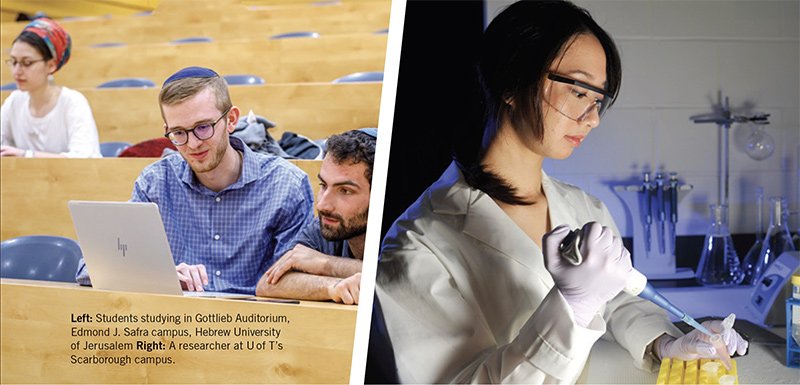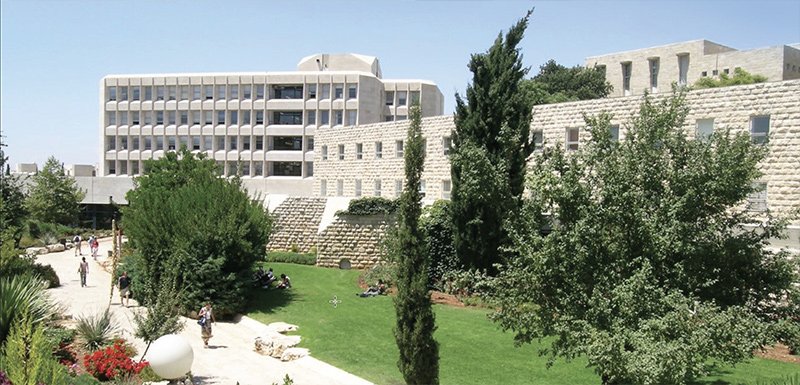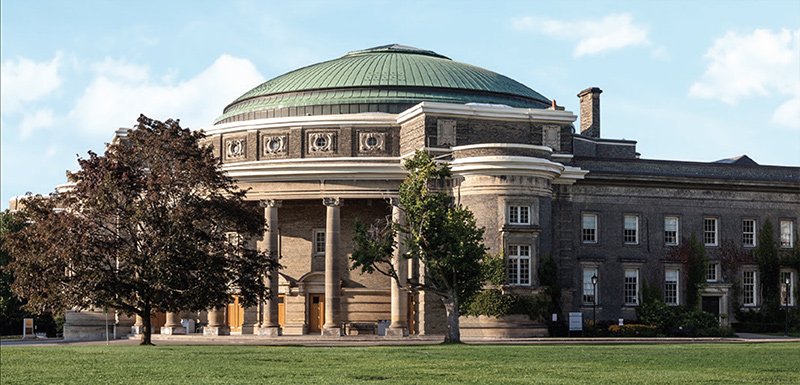

By CJN STAFF – March 18, 2021
The University of Toronto and Hebrew University of Jerusalem in Israel (HUJI) have announced a partnership that will see the two institutions collaborate on cutting-edge research and innovative start-ups.
A Zoom event on March 18 featuring the presidents of both universities – U of T’s Meric Gertler and Asher Cohen of Hebrew University – predicted the alliance “will strengthen the long and unwavering friendship between U of T and HUJI and the enduring bonds between Israel and Canada,” according to a joint statement from the universities.
Among the features of the partnership is the “International Entrepreneurship Highway,” which will give students from both schools the opportunity for on-the-ground experience with start-ups in the partner country’s innovation sector.

Students will participate in an exchange program to work as paid interns at start-ups while pursuing studies and mentorship at Asper HUJI-Innovate, Hebrew University’s Center for Innovation and Entrepreneurship – which is funded by Canada’s Asper family – and other centres for entrepreneurship at both universities.
“These exchanges will build global networks between entrepreneurs that will strengthen the innovation ecosystems of both countries,” states promotional material for the new alliance.

To help fund the partnership, U of T, Canadian Friends of Hebrew University, and Toronto’s Halbert family have established a $5.9 million endowment. The effort seeks additional community support to increase funding to at least $20 million.
(The Halbert family already underwrites Hebrew University’s Halbert Centre for Canadian Studies.)
Joint projects will be based “on their potential to advance knowledge, positively impact our lives and build on the strengths of both universities.”
Inaugural studies include an investigation into COVID and an inquiry into the impact of climate change on early human evolution.
Projects described as “seeded” include the new field of quantum biology, and studying learning or memory disorders.
Each project will be led by six or more researchers – three or more from each university – and will receive $150,000 per year, for up to four years.
The universities “have impressive histories of supporting translational research as well as building the extensive entrepreneurship networks needed to launch technology and other types of startups.” This alliance “will build on these successes.”
The two university presidents exchanged warm words.
The partnership “serves as a model of collaboration among major global institutions,” said Gertler. “Together, our impact is magnified for our mutual benefit and ultimately for the benefit of all humanity.”
The key to the collaboration, said Cohen “is our shared expertise and strength in the areas of innovation and entrepreneurship. This launch represents international innovations, research (and) unity in service to global wellbeing.”
The event was emceed by Ronald Appleby, chair of the campaign cabinet.
